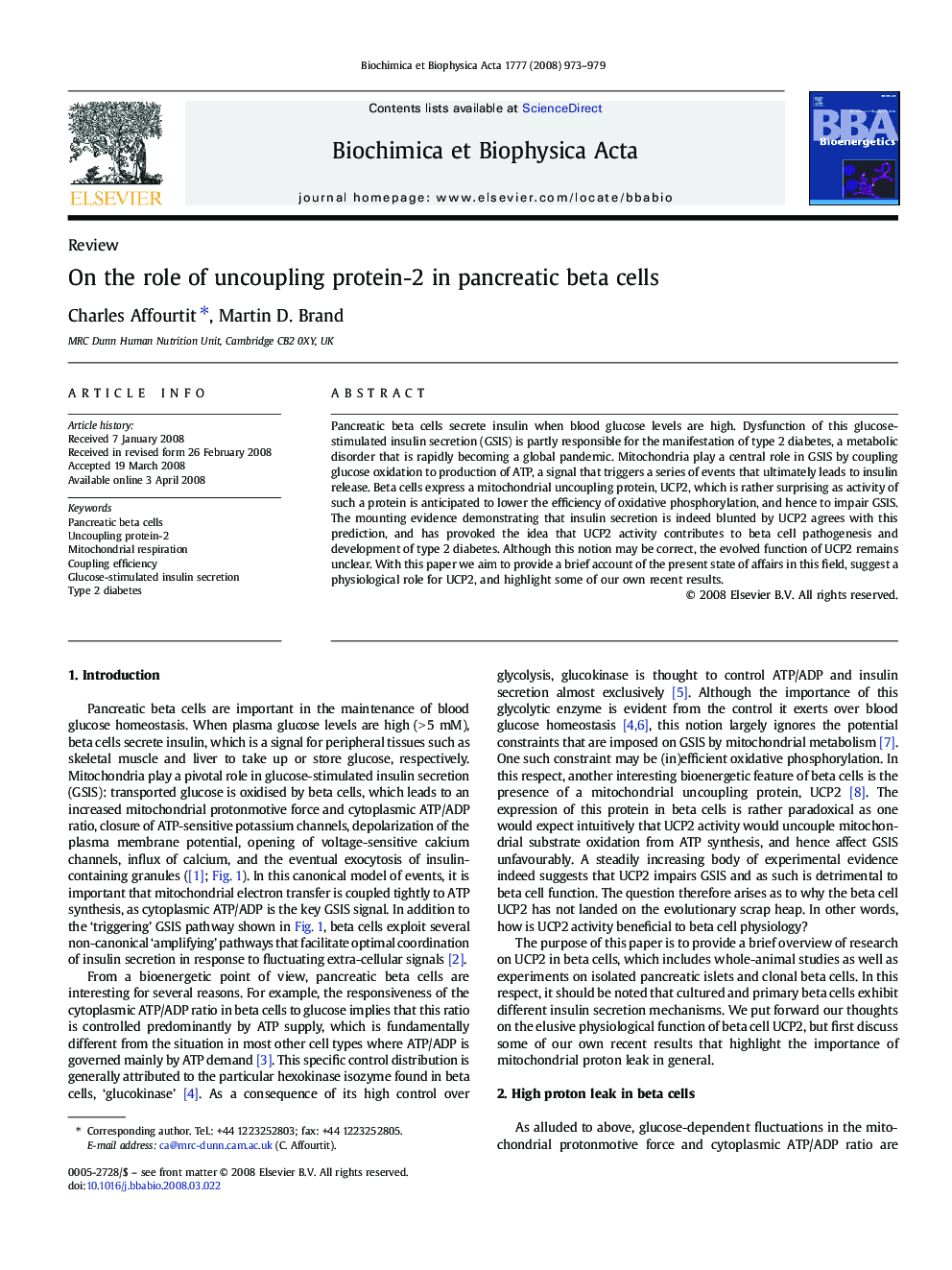| Article ID | Journal | Published Year | Pages | File Type |
|---|---|---|---|---|
| 8299218 | Biochimica et Biophysica Acta (BBA) - Bioenergetics | 2008 | 7 Pages |
Abstract
Pancreatic beta cells secrete insulin when blood glucose levels are high. Dysfunction of this glucose-stimulated insulin secretion (GSIS) is partly responsible for the manifestation of type 2 diabetes, a metabolic disorder that is rapidly becoming a global pandemic. Mitochondria play a central role in GSIS by coupling glucose oxidation to production of ATP, a signal that triggers a series of events that ultimately leads to insulin release. Beta cells express a mitochondrial uncoupling protein, UCP2, which is rather surprising as activity of such a protein is anticipated to lower the efficiency of oxidative phosphorylation, and hence to impair GSIS. The mounting evidence demonstrating that insulin secretion is indeed blunted by UCP2 agrees with this prediction, and has provoked the idea that UCP2 activity contributes to beta cell pathogenesis and development of type 2 diabetes. Although this notion may be correct, the evolved function of UCP2 remains unclear. With this paper we aim to provide a brief account of the present state of affairs in this field, suggest a physiological role for UCP2, and highlight some of our own recent results.
Keywords
Related Topics
Life Sciences
Agricultural and Biological Sciences
Plant Science
Authors
Charles Affourtit, Martin D. Brand,
